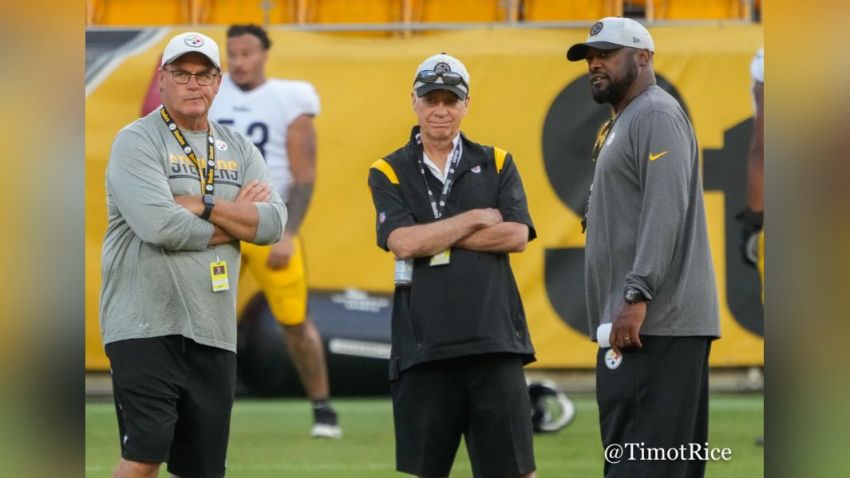Abstractly, the Pittsburgh Steelers are to be commended for their perennial efforts to maximize their chances of winning each year. There is virtually no point in their recent history you could point to and say, ‘This is where they decided to pack it in’. More pragmatically, there are downsides to that approach as well.
“Every team says that they want to win the Super Bowl every single year. I feel like the Steelers are the only ones I truly believe when they say it”, Mike Florio said on 93.7 The Fan yesterday on the Poni and Mueller program. “Sometimes I do think that they focus so much on trying to win a Super Bowl this year that they don’t account for the future maybe the way they could, but they’re aggressive about using their cap dollars. They’re aggressive about spending their available money”.
Almost regardless of circumstances, the Steelers go into each season with roughly the same percentage of cap space available to them, representing an in-season chest to account for unforeseen circumstances, particularly injuries. That number increases as the salary cap and salaries increase, but proportionally it’s been pretty constant.
The one exception in which they (eventually) had more money than that was 2017 when RB Le’Veon Bell opted not to report under the franchise tag. Since he never signed it, the Steelers eventually got that money back.
They turned around and used that to tag OLB Bud Dupree a year later, something they may not otherwise have done, or which if done would have prevented them from being able to do other things. That’s par for the course for Pittsburgh, but not by surprise, even if perhaps not quite by design either.
“The Steelers are one of the few teams that every year seem to be in a situation where they’ve got to figure out how to creatively manage the salary cap”, Florio said, a fact we’re all aware of. “So they’re spending money and they’re allocating resources and they’re doing what they have to do”.
But that’s part of their annual commitment to winning. You can’t truly claim to be doing everything in your power to win each season if you’re not spending to the cap. Their approach can be faulted on many fronts, but they certainly cannot be accused of failing to try.
What they may lack at times is a more long-term plan. They will certainly tell you that they always keep a long-range view in mind, though. Perhaps it’s better to categorize it not as what they are unable to see but rather what they are unwilling to do.
In a league ostensibly driven by parity, it’s generally held that you have to go through lean years in order to build up talent. Poor results yield higher draft picks, which in theory accumulate to a superior pool of talent. You are also re-signing less talent when you struggle, enabling you to retain and accumulate more cap space to, when appropriate, spend in free agency.
Trying everything you can every year to win the Super Bowl, even in the years in which it’s clearly less likely than others, prevents you from maximizing your resources in this way. The 2019 season is a prime example, a year in which the Steelers went 8-8 and traded away a first-round pick in a year in which many thought they could (or should) tank to secure an extremely high draft pick following Ben Roethlisberger’s injury.
Granted, that first-round pick turned into Minkah Fitzpatrick, but what if they had the second-overall pick in 2019? That could have been Nick Bosa. And yet they got Alex Highsmith that same year in the third round, plus Fitzpatrick. And they didn’t embarrass themselves that year.








